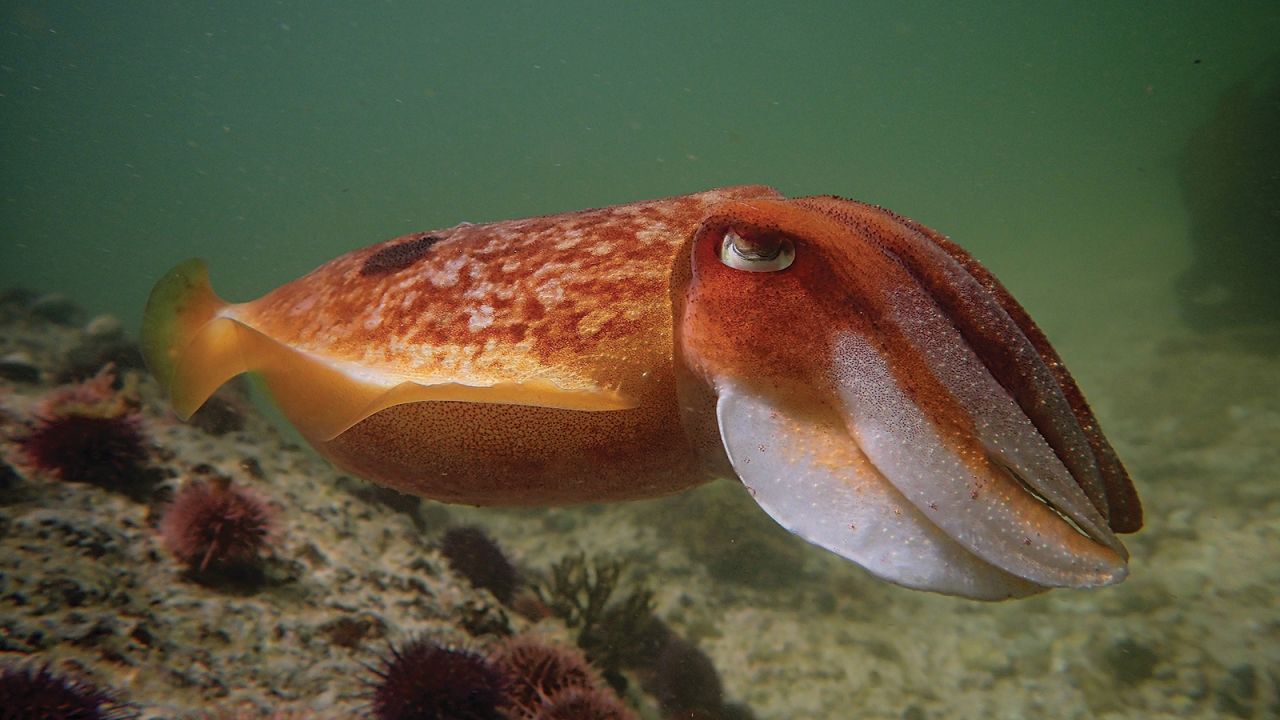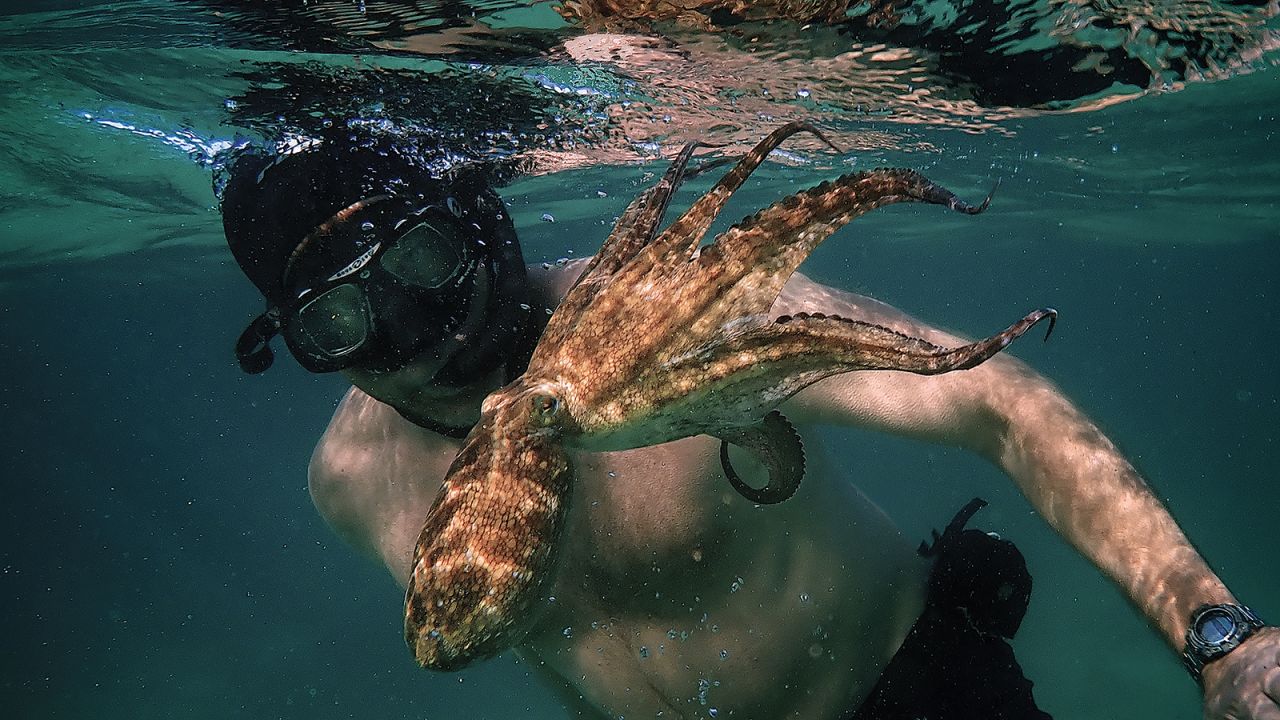Craig Foster was chest-deep in freezing water off the southernmost tip of Africa when he saw her: an octopus hiding under a cloak of shells and stones.
He was enchanted, so he started to follow this very shy creature. He tried to show that he wasn’t a threat by staying very still around her. She stayed away from him for weeks by hiding in her den, making herself look like something else, and squeezing her liquid body through any crack she could find.
Then, after almost 26 days of trying to get him to like her, she reached out and touched him.
In the new Netflix documentary “My Octopus Teacher,” there is a touching scene where an octopus tentacle wraps around a human’s hand. This scene makes you feel things you never thought an octopus tentacle could.
Filmed in 2010, “My Octopus Teacher” tells the story of how Craig Foster spent a year getting to know an unusual creature and building a special relationship with it. The nature documentary got eight votes for the Jackson Wild Media Award and won Best Feature at the EarthxFilm Festival.
Foster was able to get close-up pictures of this octopus’s short life by following her for up to two hours every day for a year.
“If you gain the trust of that animal over a period of months, it will actually ignore you to a certain degree and carry on with its normal life, and allow you to step inside its secret world,” Foster tells. 
We see her outsmart a shark by riding on its back, get attacked by a shark and grow a new tentacle, and then finally die after laying eggs.
“The octopus showed me many behaviors that were completely new to science, because this animal trusted me,” he says
The most powerful moment for Foster was when she allowed him to follow her on a hunt.
“It’s not like you are in a Jeep and arrive upon a hunting scene on land,” he explains. “In the water it’s intimate. When she chooses to let you into her world … it’s a very, very special moment of not just being accepted, but that your presence to her also feels natural, like you belong in that space with her.”
Foster has been diving in a kelp forest in the Atlantic Ocean off the west coast of South Africa for the last ten years, where the water can get as cold as 8 degrees Celsius.
He says that this part of the ocean, called the “Cape of Storms,” is “the most dangerous coast in the world.” Some swimmers are afraid of sharks or other dangerous animals, but Foster says that being thrown onto a rock by a big wave is the biggest danger to his life.
Foster started to dive every day as a way to deal with his sadness, which had left him feeling raw and alone. “I was struggling. My only way to heal felt like I needed to be in the ocean, my go-to happy place as a child.”
He says that being in this underwater world has helped him calm his mind. Over the years, animals like otters, whales, crabs, and even sharks have tried to get in touch. “They have chosen to come to me and make that contact, showing a moment of trust and vulnerability,” he says. “Every time it’s breathtaking and healing.”
But he says that nothing has been as special as his “once-in-a-lifetime” relationship with the octopus.
Foster says the most important thing she taught him was that people are a part of the natural world around them, not just visitors.
“Your own role and place in the natural world is singularly the most precious gift we have been given.”







